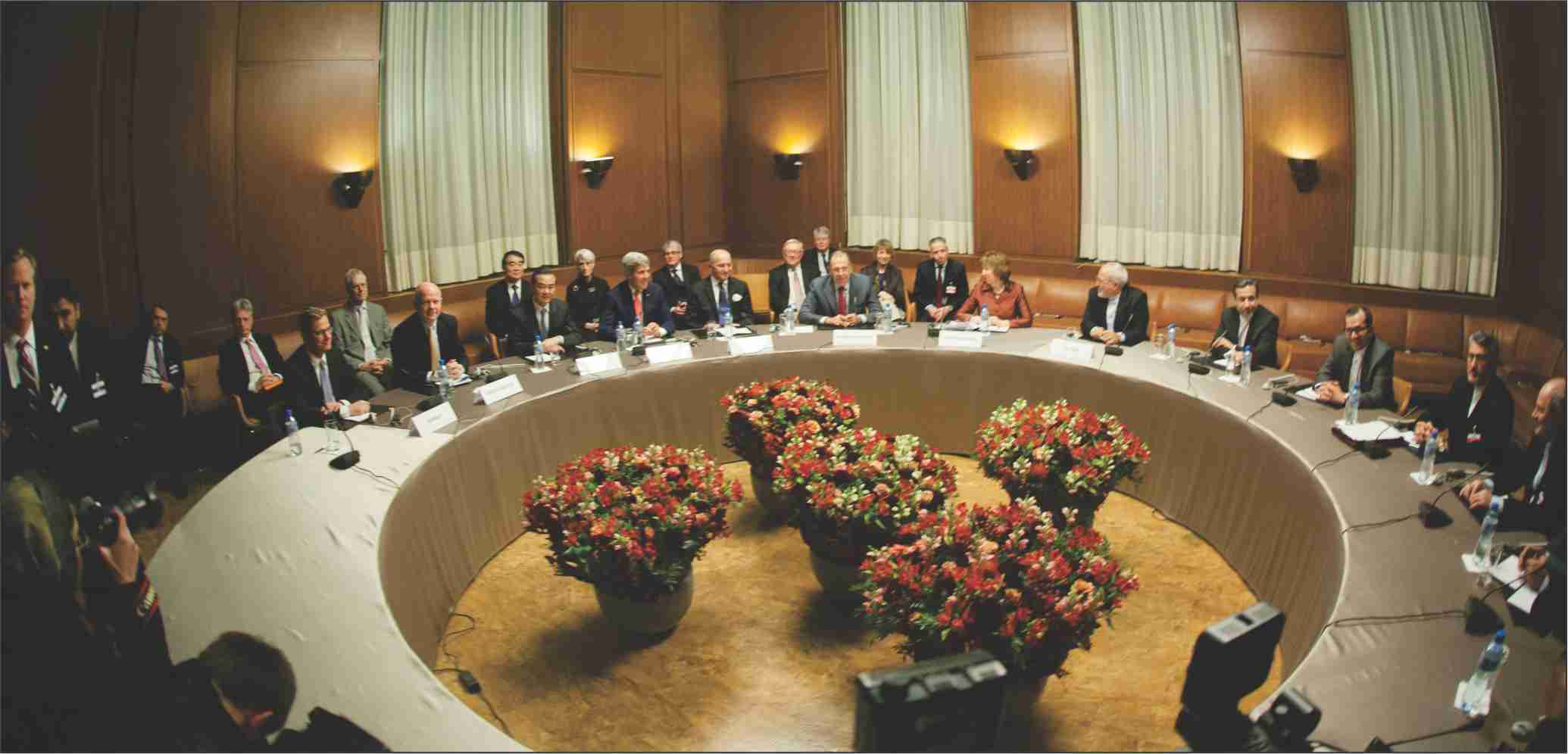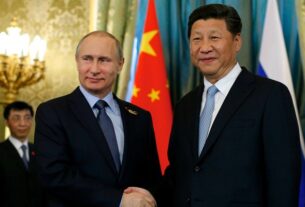Changing equations between Iran and West
A new world order is being created that may significantly change the old equations and alliances between West and Iran on one side and relations between Shia-Sunni regimes of the Middle East on the other hand.
These may also address the concerns of Israel with regard to Gaza controlled by Hamas and West Bank administered by Fatah. Threats posed by Islamic State and other jihadi forces in Syria and Iraq, have prompted West and Iran to move closer to each other. The US and Iran, who used to look at each other with suspicion for more than 4 decades, are trying to build trust by resolving the most contentious issue of Nuclear program.
The November 24 decision to extend the P5+1-Iran nuclear negotiations for another seven months (three to four for the political framework “and another few months to formalize it”) was not a surprise, although it did create a sense of anticlimax. It was preferable to the option of a deal concluded hastily in the final days, because such a deal would no doubt have reflected additional far-reaching concessions by the international negotiators to Iran, resulting in a very bad nuclear deal.
Now Tehran and the P5+1 group of international negotiators plan to discuss Iran’s nuclear program later in December.
The sticking point revolves around Iran seeking complete removal of sanctions (2 sets of US sanctions plus UN and EU sanctions) while the P5+1 nations will be demanding revealing of complete information on the level of Uranium enrichment from Iran and also about the secret nuclear facility at Arak .
The US Secretary of State John Kerry has warned that a bad deal would be worse than No deal but President Obama has clarified that he would ease US sanctions even by using executive authority thus without having to go through a hostile Republican controlled Congress.
Apart from the aforesaid strategic considerations, Europe has already launched EU-Iran forum to evaluate the prospects of trade and investment opportunities for the western firms in an Iranian market where the private firms are doing thriving business. This move enhances the chances of nuclear deal being struck between Iran and the western World.
Keeping in view the ISIS threat and the Middle East crisis, Obama has finally decided to depart from its decade old foreign policy.
Obama even wrote a secret letter to Iran’s supreme leader Ayatollah Ali Khamenei who has the power of last words especially in all policy matters, mentioning shared interest between the US and Iran in combating Islamic State militants in Iraq and Syria.
Regional insecurities
But Israel as a close US partner is unhappy over Obama’s softening of stance with Iran since its rise in Mid East strikes at the very roots of their existence especially in view of Khamenei’s recent statement regarding elimination of Israel state.
Thus from the very start, Israel was not in favor of the negotiations with Iran but it refrained. Israel therefore considers that if the permanent nuclear deal brings Iran on the threshold of a nuclear power state then it might have to rethink its strategic and military options even though US pays 3.5 billion to Israel for maintaining its military advantage against its neighbors but Netanyahu prefers to retain other alternatives for Israel’s survival in a hostile neighborhood.
Five Arab nations UAE, Saudi Arabia, Jordan, Qatar and Bahrain are in coalition with US in conducting air strikes in Iraq and Syria. But Arab nations view the drastic change in US-Iran relations as inimical to their interests as Saudi Arabia is not inclined to agree to the rise of Iran in this region.
Iran has always been harboring the old age ambitions of becoming a Middle East power and Khamenei may prefer to seize this opportunity by entering into an understanding with US that his country’s elite Revolutionary Guard and its local proxies will not target American military personnel conducting air strikes against ISIS from Baghdad and Kurdish areas.
Shifting policies
But the big question is what prompted Obama to change its strategic policy in Middle East and Central Asia.
Russia’s recent expansionist policy in Ukraine prompted Obama to accommodate Iran-a Shiite military power- as its ally in West Asia to checkmate Putin’s designs. In these murky days of global transformation and fast changing equations, Obama and Iranian President Hassan Rouhani have taken the first major initiative towards stating a new cooperation between the countries in eradicating terrorism and bringing stability in Afghanistan.
Central Asia and Afghanistan are the other distant features of Obama’s vision with respect to his policy shift concerning Iran. He considers these as essential imperatives to squarely checkmate Russia’s and China’s influence in Central Asia and Afghanistan.
Sharing of power in Afghanistan between Ashraf Ghani as president and Abdullah Abdullah further injects an element of fragility and gives an additional handle to the violence related activities of Taliban. Tehran’s involvement in Afghanistan’s affairs in any manner will lend a sobering effect to the Afghanistan’s Taliban’s activities especially at the critical juncture when US led forces are about to leave the country.
Under Hamid Karzai, Afghanistan relations with Pakistan had not been very friendly as he always considered Pakistan as the source of Taliban violence in Afghanistan. But now Afghanistan president Asharf Ghani is starting a new chapter in Afghan-Pakistan relations to bury the old hatchet by starting the reconciliation process of Taiban in the wake of drawdown of US led troops scheduled for next year.
Due to strategic location of Iran in Central Asia as well as having influence over the territories of Northern Afghanistan the move to bring Iran in this space assumes significant importance .
Further Iran has always had historical relations with the countries of Central Asian Republics and can play a greater role as a US ally in the region .
Central Asian Republics had always been affected by the happenings in the neighbouring Afghanistan but now with the ISIS danger looming in the Middle East is adding entirely another dimension to the problem. In fact Iran could play an important role in integration of the region comprising Kazakhstan, Kyrgyzstan, Tajikistan, Turkmenistan and Uzbekistan that constitute the main central Asian region and added influence on the area of Northern Afghanistan.
It is assumed that the improvement of Iran-America relations would in a way tend to limit Beijing’s and Moscow’s role in Afghanistan and Central Asia.
Though there are hardliners in both US and Iran who relentlessly resist the diplomatic solution envisioned by Obama, but his statesman like move can certainly address few immediate US concerns in the Middle East, but it may not result into any sustained solution for the crisis in the region.




